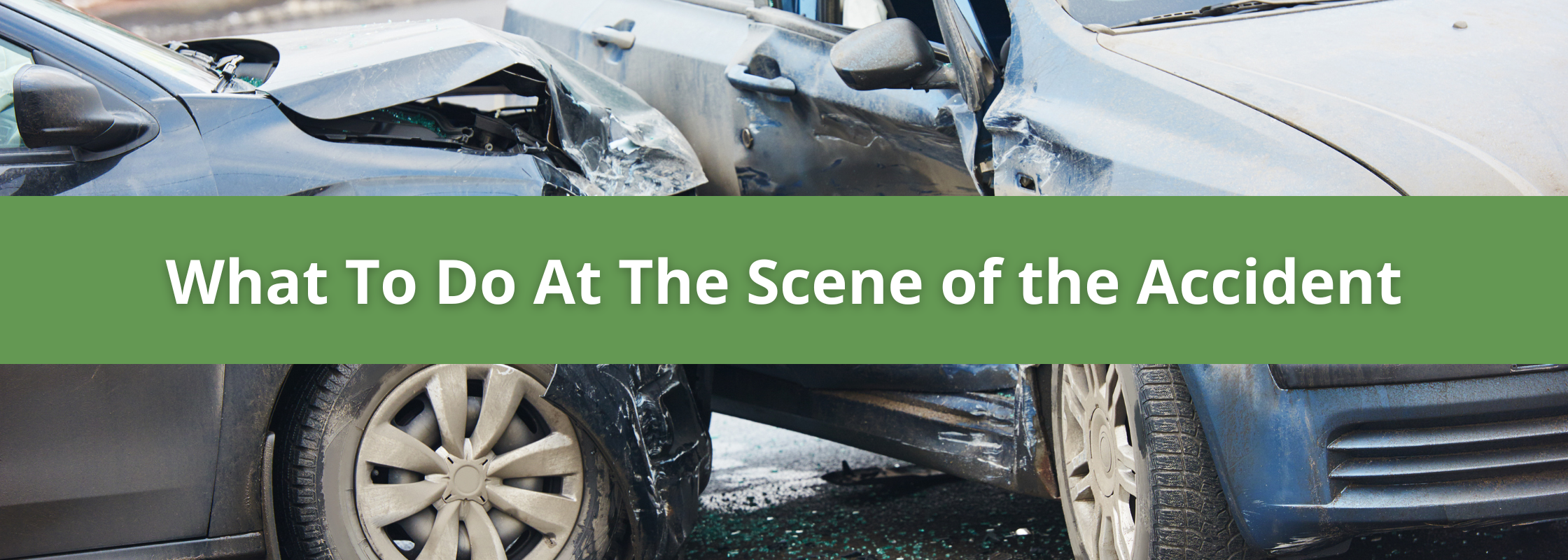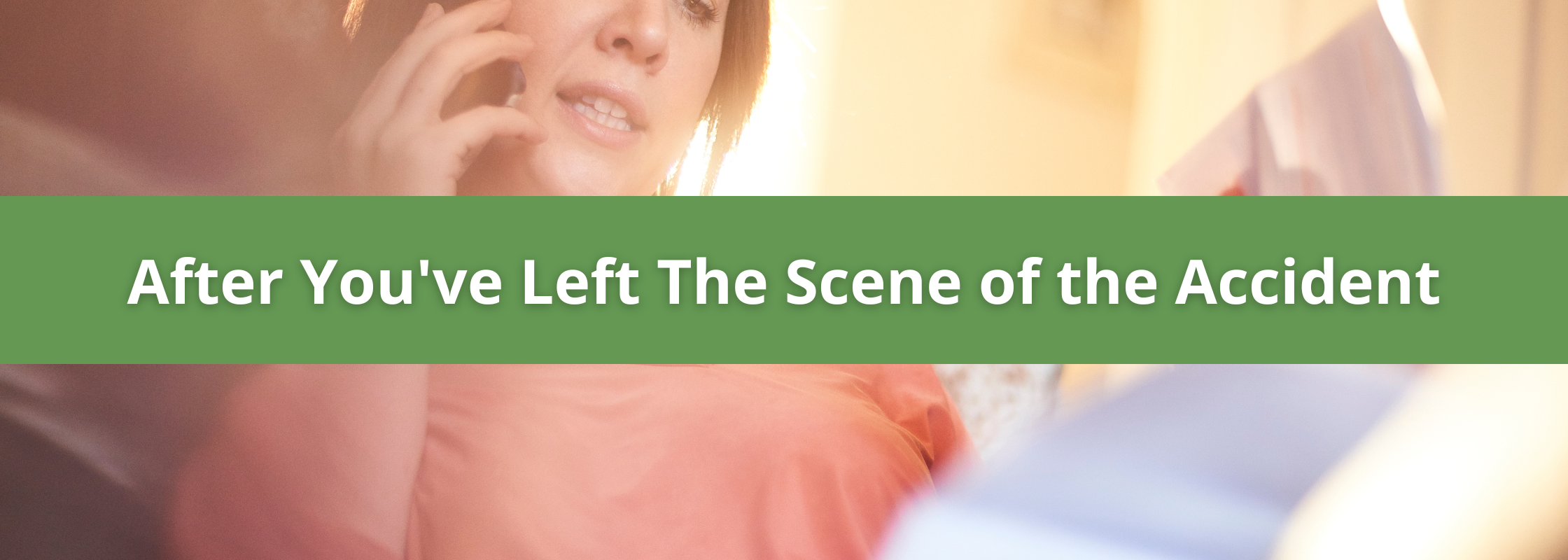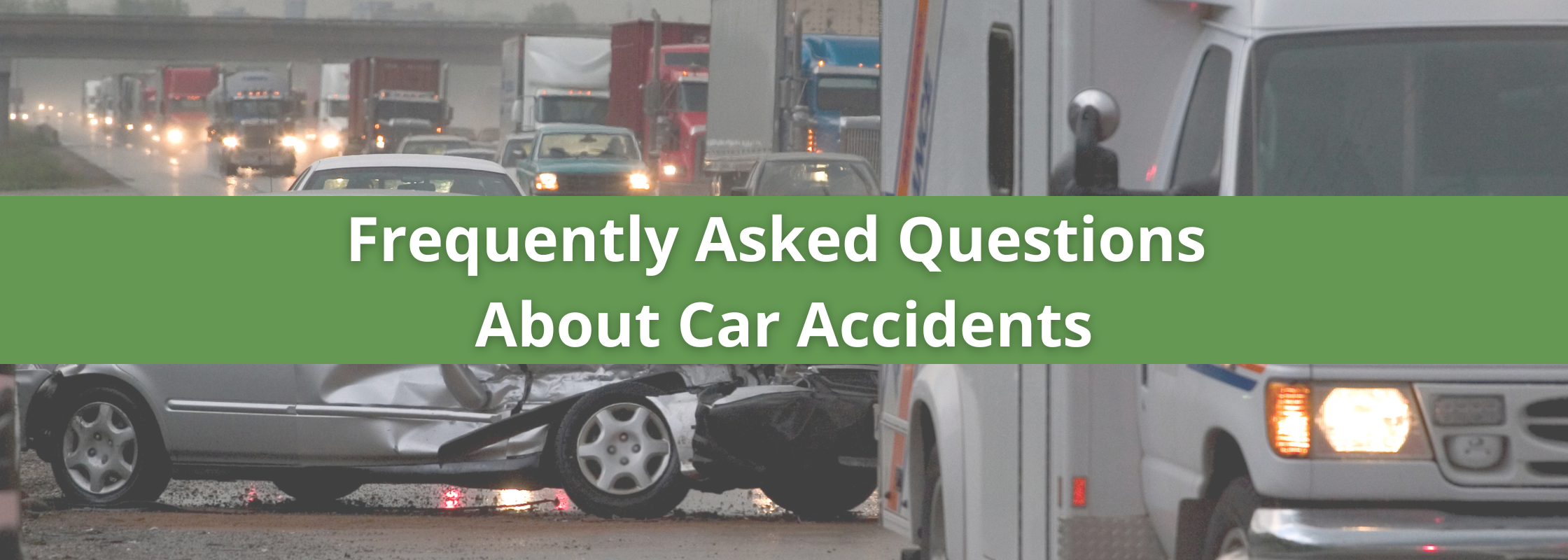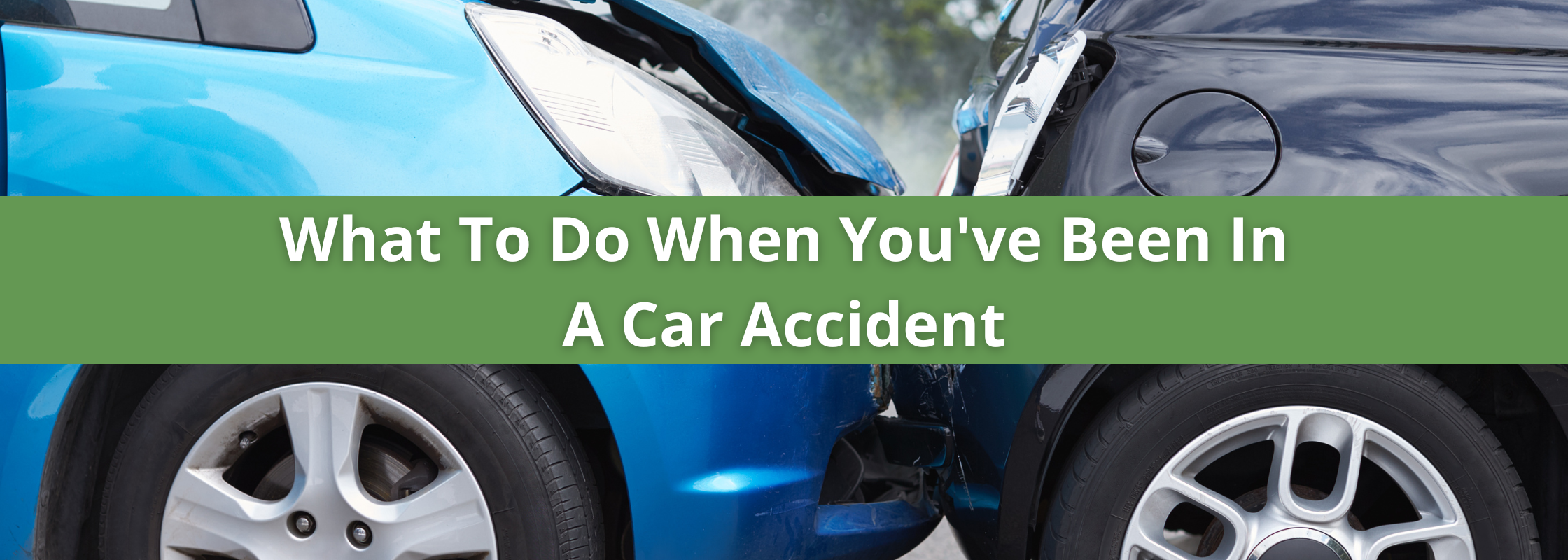Six million car accidents happen every single year, but what do you do when it happens to you? There are a lot of variables to consider after a car accident has taken place. In, the moment, it can be very overwhelming to remember all of the important details. There will be a lot of contributing institutions involved after the accident; the law, your insurance company, and potential medical bills.
This article will help you prepare and be aware of the procedures in place once you have been in a car accident. It can be concerning not knowing what to do after a car accident but with preparation, the process will be less daunting. We will cover each step of the way to make sure you are feeling confident next time this happens to you!
Quick Links:
- At The Scene of the Accident
- After You’ve Left the Scene of the Accident
- Determining Who Was At Fault
- Speaking With a Lawyer
- Understanding Ohio’s Accident Laws
- Car Accident FAQ
So You’ve Been In A Car Accident: Now What?
There are a lot of factors that contribute to why accidents take place. This could be from distractions, reckless driving, texting and driving, and the list goes on. Many times, the accident will not be your fault!
The best practice is to remain calm, and not let your anger get the best of you. This can be a very frustrating situation! As of December 2021, Ohio has seen over 54,000 car accidents; over 2% of these accidents had been fatal to the drivers and passengers involved in the accident. So know that you are not alone in this situation!
What is most important is that you and your passengers have survived the incident and are safe. Your vehicle is replaceable, you are not!

What To Do At The Scene of a Car Accident
The first step in the process is to stop and check for injuries on yourself. Once you’ve taken care of yourself, check for injuries with the other parties involved. If medical attention is needed, immediately call the police.
Getting the injured taken care of is of the highest priority, as it could be a life-or-death situation. The faster you call 911, the faster help can get to you.
Checking For Injuries & Moving to a Safe Area
Once you have checked yourself and others for injuries it’s time to check your surroundings. If you are in the middle of an intersection or busy street, it’s helpful to move your vehicle out of the line of traffic. This way if emergency services need to reach you, you will be in a less congested area.
Your car might not always be able to move from where the accident scene is, so you might only be able to move yourself and your passengers to safety. Walking to the side of the road or sidewalk away from traffic is the best practice to keep yourself safe. If you are able to move your car, pulling into a close parking lot would be ideal.
Calling An Ambulance and Law Enforcement
If you, your passengers, or the other party involved in the accident need medical attention, it should be your first priority. Even if you are feeling only slightly shaken up, it might be a good idea to have a medical professional check for injuries you might not realize you have. You may even feel confused after your accident! This information will be important later if you need to file a claim with your medical insurance.
This goes the same for having the police at the scene of the accident, as a police report might be necessary for your car insurance company to make a claim. The police may also be able to de-escalate any issues between the two parties as well as redirect traffic to keep you safer.
What information should I provide to the 911 dispatcher?
Give the 911 dispatcher as much information as you can. Your location, amount of cars involved in the accident, and any known injuries should be relayed as soon as possible.
If you don’t know where you are, often times the longer you are on the phone with dispatch, the more likely they are to hone in on your location via your phone network and cellphone towers. This is helpful in a more severe accident when it might be difficult to verbalize or comprehend your surroundings after impact.
Do I need to call the police if the accident was minor?
It is not always necessary to call the police, especially in minor fender benders, but consider it added security. If you decide after you exchange information with the other party that you need to file a claim, have the police report and officer’s information.
Having a police officer present will also ensure that the other person involved in the accident is giving you the correct personal information. An officer can also help gather information from surrounding witnesses or ask to access footage from local buildings to get the full picture of what happened.
Conversations With The Other Drivers Involved
Tensions can be high after an accident, especially when someone feels as if they’ve been wronged. Do your best to de-escalate the situation, or have the police mediate the conversation to get to the bottom of what happened during the accident. It is very important to get a thorough report on what happened at the scene of the accident.
Ideally, you can have a civil conversation, after all, it is an accident. All parties are protecting themselves by doing their due diligence to record all of the information from each driver involved.
What If The Other Driver Leaves the Scene?
If the other driver leaves the scene of the accident, call the police immediately. Make sure you are safe and do not need immediate medical attention, and then tell the police officer all that you remember from the incident. Look to see if there are any witnesses around who would have more valuable information for you.
Unfortunately, all you can do with the minimal information you have is give the police officer your personal information, license and registration, your auto insurance, and the best way to contact you in the event they catch whoever did the hit-and-run. If caught, the perpetrator can face license suspension and even jail time!
Collecting Information For Insurance And The Claims Process
When assessing the situation, it is important to note who is at fault for the accident. If you are the one who caused the accident, then you will file a claim with your insurance company. If the other person is at fault for the accident, then you will file a claim with their insurance company.
Following the claims submission, there will be an investigation that takes place. It is important to take pictures, record any information, and witness accounts that will work in your favor. It will also be in your best interest to get the name and badge number of the police officer who filed the accident report.
Document The Scene of the Accident
You will want to make sure all of your bases are covered before submitting your claim to your insurance company. Any and all information is going to be beneficial to get an accurate claim filed with your or the other party’s insurance company. The claims process can be lengthy, so it’s best to get all the information you can on the front end.
Consider the following when recording your accident and what needs to be photographed;
- Multiple angles of your car including close-ups and distance shots
- Surrounding debris or broken parts from your car
- Any inflicted surface injuries to you or your passengers
- Skid marks or tire track marks
- Airbags, and the interior of the car
- The other parties involved cars with varying angles
- Any faulty traffic signals or signs
The more thorough you are in the recording process, the more accurately the care insurance company can assess the damage inflicted.

What Do To After You’ve Left The Scene of a Car Accident
After you have left the accident scene and have contacted the at-fault driver’s car insurance company, you may need to consider whether or not your car is drivable to its next location. If not, your next step will be to call a tow truck company. Many tow companies have different rates, so it would be beneficial for you to get more than one quote.
Once you’ve taken care of the car, your next step may be to contact an attorney to inform them you’re waiting to hear back about the insurance claim. If the accident is minor, this step may not be necessary. However, once the insurance company reports back on the incident, you may need to dispute it for better compensation.
Assessing Injuries & Getting Medical Care
Depending on the nature of the collision, some injuries will be more apparent than others. Some injuries start showing signs after the accident, even weeks and months later! Getting assessed immediately by a medical professional whether that be the paramedic at the scene of the accident or your primary care doctor is important for potential future insurance claims.
It may not seem necessary at the time of the accident, but you will be protecting your future self by getting examined as soon as possible. Injuries such as concussions or whiplash might not be obvious at the time of the accident due to the adrenaline from the crash keeping pain at bay.
Accidents resulting in more severe injuries such as broken bones or bleeding need to be taken very seriously. These injuries are more obviously in need of medical attention, but the medical records are just as important for both types of injuries for insurance companies.
Notifying the Ohio Department of Motor Vehicles
Depending on where you live and the seriousness of your accident, you may need to file an accident report with your Department of Motor Vehicles. Cities such as Columbus and Cincinnati require an accident to be reported. Otherwise, in other circumstances, it might only be your insurance that requires a crash report.
If the other driver involved in the accident does not have car insurance it is encouraged that you file with the Department of Motor Vehicles. This is to create a record for the uninsured driver to evaluate whether or not this incident warrants a license suspension. It is against the law in the State of Ohio to drive without car insurance.
Obtaining a Police Report
Your insurance company will request that you get a copy of the police report and the police report number. Depending on the state, you might find that there are different methods for retrieving your police report. For example, in the State of Ohio, it may take up to six weeks from the time of the accident to get information on your report as it might not be posted online immediately.
To get your police report sooner, the best practice is to record all the information you can about the officer including, their name and badge number, and the city in which the accident took place. This allows you to get the information right from the source much more quickly.
How To Start an Insurance Claim After the Accident
After the accident, you will want to call the insurance company as soon as it is safe to do so. Some insurance companies now have mobile apps you can use to report the incident as well. This allows your insurance company to guide you in your next steps on how to file a claim. The claims process may vary with different providers.
When you report the accident, you are only informing them that the accident took place. You will be given a claim number and an insurance adjuster will likely be in contact with you shortly thereafter.
It is important to note; Any information reported to the insurance adjuster will be used to evaluate the amount of compensation you may receive. The insurance company may propose a settlement or negotiations may follow. If you are not comfortable with speaking to the insurance adjuster, you may want to have an attorney do communicate on your behalf.
Determining Fault For The Accident
When determining who is at fault for an accident, there are many factors to consider. To put it simply: You must prove that whoever caused the accident failed to do what another driver could have prevented in that same scenario. Speeding, drinking and driving, and texting and driving, are all actions that influence who was at fault.
If you were in an accident that is not your fault, the at-fault driver’s insurance company will likely do its best to displace blame from their client during the claims process. The insurance adjuster will take the police report into consideration, but they will make their own additional investigations.
After you or your attorney recount the incidents that took place at the time of the accident, the insurance company will return with what they think your claim is worth. This is why it is so important to document everything you can during an accident because any missing information can be used against you.
If you do not have proof of damage or medical injury, they will likely not compensate you for it based on your claim. A well-put-together and organized claim will likely produce a more favorable outcome for you.
When you are the one who is at fault in an accident, you are liable for the property damage and injury of those involved in the accident. This means you and your insurance could be paying for their medical expenses, car repairs, any lost income during their recovery time, and possibly even for their pain and suffering.
In the State of Ohio, it is mandatory to have a minimum of $25,000 in coverage for property damage and another $25,000 in injury/death coverage per person involved. If your damages exceed the amounts above, you will have to pay the remaining costs out of pocket. This could result in your existing assets being taken away, or future wages garnished until the amount owed is paid.
Vehicle Inspection & Repair Process
It is not mandatory to get a yearly vehicle inspection in the State of Ohio, however, it does benefit you to keep your car in a safe condition. If a police officer sees your car in unsafe condition while on the road, they may pull you over to suggest you take care of the apparent damage.
Driving with parts of your car missing such as headlights, tail lights, and bumpers can be dangerous for other drivers. Especially if pieces of your car are almost falling off! Take your car to your local mechanic and get your car inspected to make it safer for the road.
How long do most car accident settlements take?
Most car accident settlements take several weeks after the claims process is started. Car insurance companies have specific timelines they must adhere to. Within the first two weeks, the insurance company must send the policyholder their paperwork, including proof-of-loss forms.
Insurance companies then have three weeks to make their decision on the claim after receiving the proof-of-loss form. Once a decision is made on the amount of compensation the wronged party is to receive, the insurance company has ten days to make the final payment.
Speaking With a Lawyer
Getting a lawyer involved may feel like you are overcomplicating the situation, but working with someone who knows the claims process thoroughly has its advantages. It only takes one slip-up when speaking about your accident with the insurance adjuster and can make a difference of thousands of dollars in payouts or your own compensation.
If your accident involved serious injuries or major property damage, do NOT sign anything that comes from the other driver’s attorney or insurance company without talking to a lawyer. It can be easy to miss what’s in the fine print of a contract or release form, and your lawyer has your back!
Hiring a lawyer will better your chances of getting the best compensation possible. On the other hand, if you are the at-fault party, your lawyer will make sure the insurance companies do not get overzealous in their expected payouts and negotiations can be made.
What Not To Do After a Car Accident
Now that we’ve covered what you should do after you’ve been in an accident, it’s important to also know what not to do. As mentioned above, do NOT sign anything or verbally agree to anything you do not understand relating to your accident. Admitting fault, even if it is your fault, can be detrimental to your case. You may not know the full extent of the damages done in the midst of the accident.
Waiting until you have stepped away and recovered from the incident is best. Once you have recovered, you may want to handle the communications on your own or consult a lawyer. Having a clearer mindset is best when approaching legal matters!
Understanding Ohio’s Car Accident Laws
In the State of Ohio, the statute of limitations after an accident is two years. This means that after your accident, anywhere within a two-year period can the opposing party come back and seek compensation. It can be difficult to remember all of the details of an incident that happened a couple of years ago, so hiring a lawyer is best to keep the facts straight.
Oftentimes, this occurs when an injury rears its head long after the accident. In court, the afflicted party must be able to prove that their ailment is directly correlated to the damages done in the incident.
Another instance we see this is that when a child is involved in an accident, once they turn 18, their statute of limitations begins. Again – they will have to prove that the accident you were involved in is directly correlated to their long-term injuries and suffering. This is why it’s so important to have someone who knows the associated laws well on your side!
Ohio: Third-Party Liability State
In the State of Ohio, it is mandatory to have car insurance coverage, but ultimately, you are protecting yourself! You must have a minimum of $25,000 in coverage for property damage done to any vehicles or personal property. The same rule applies to personal injury or death coverage per person involved.
If your damages exceed the amounts above, paying out of pocket can be very difficult. This could result in your existing assets being taken away, such as your house and car. You may also have the option to have your wages garnished from each paycheck until the balance is paid.
Ohio’s Contributory Negligence Statute
About 40 years ago, Ohio enacted the comparative negligence law, also known as the contributory negligence statute. Comparative negligence allows a person to recover damages based on their percentage of negligence during the incident.
For example, in an accident, both parties often have damage to their vehicles. Depending on who is at fault, typically one person receives more compensation than the other. If both parties are damaged, the at-fault person will have to pay for the victim as well as their own damages. This law helps mitigate the cost of the damages between the two parties.

Frequently Asked Questions About Car Accidents
Hopefully, this article has cleared up what to do after a car accident. Here are some frequently asked questions to help clear any other thoughts you might have!
What happens to your body after a car accident?
After you are in an accident, your body will take some time to regulate itself. Your body produces more adrenaline and endorphins to protect itself and keep your body alert to any further danger. The hormones block out pain and stress to help you focus on damage control. Some reactions may be more physical, such as symptoms of whiplash or concussion that you might not realize at the time of the accident.
The types of injuries you gain after an accident vary depending on how your car was impacted as well as the speed at which the accident happened. Some injuries may be more apparent than others, but this is why an examination immediately afterward is crucial to start getting the care you need.
Can injuries appear months after a car accident?
Although many injuries will be visible and obvious at the time of the accident, such as broken bones, bleeding, or cuts. Many injuries can show up weeks to months later! Internal injuries are can sneak up on you down the road.
Your internal organs, including your brain, can be damaged during a crash but do not show signs of damage at the time of the incident. An infection can form later on from damaged organs that were not treated immediately. Unfortunately, these wounds might now show up until they’re in desperate need of treatment!
Will a car accident cause my car insurance to go up?
Yes, your car insurance will most likely go up after you have been in an accident. The car insurance company will find you to be a bigger risk once you’ve had one incident as they feel like it’s more likely to happen again.
In some circumstances, your insurance rate can even double after an accident! This is why sometimes in minor accidents, people will choose to pay out of pocket, to avoid their rates going up.
Can you challenge an insurance claim?
You can absolutely challenge an insurance claim! If you are not satisfied with the compensation from the settlement offer, you can appeal to have them change their decision. The insurance company has to give an explanation as to why they settled on that specific amount. Having a third party look over your settlement takes the final say away from the insurance company and gives you the chance to get higher compensation.
How does a car accident affect the value of my car?
Once your car has been in an accident, it will never quite be the same. Just like your body, even after a check-up, your car might have issues that show up weeks to months later.
Make sure you are taking your car to a body shop that will check all parts of your car to prevent future issues. Unfortunately, your resell value will go down either way with an accident on record.
How do I calculate the diminished value of my car after an accident?
The best way to calculate your car’s diminished value after an accident is to consider the age of your car, the number of miles it has, and the severity of the damage inflicted. Kelly Blue Book has a calculator that can help determine the current value of your car.
While Kelly Blue Book takes the mileage of your care into consideration, the insurance companies have a formula for calculating additional damage. The higher the damage and mileage of the car, the lower the value.
How long will an accident stay on your driving record?
Your insurance company may not count your first small fender bender, however, any other accidents will stay on record for 3 years. If you have a record of DUIs or Hit and Run’s, your insurance company will likely keep track of this for 10 years.
Should I take my accident to small claims court?
Small claims court is only for cases that seek damages for $6,000 and less. If there is only damage done to your car and it is less than $6,000 worth of damage, it would be worth it for you to take it to small claims court.
If the damage is above $6,000, then you would either want to file an insurance claim or take your case to civil claims court.

Jim Trakas is a licensed instructor with the Ohio Department of Public Safety’s Driver Training Program. He has a distinguished history of public service, including his role as a former member of the Ohio House of Representatives and current Councilperson at Large for the City of Independence.
As the founder and owner of the American Online Learning Center, Jim has been providing comprehensive behavioral corrective programming since 2014, helping individuals achieve meaningful personal growth and development.
Jim’s commitment to service extends to his military background, where he has earned several prestigious honors. He was awarded the Ohio Commendation Medal by the Ohio Army National Guard and the Pandemic Campaign Medal by the United States Public Health Service. Additionally, he is an Honor Graduate of the Ohio Military Reserve Training Academy’s Officer Candidate School and a two-time recipient of the Military Proficiency Award, as well as the Military Achievement Award.



